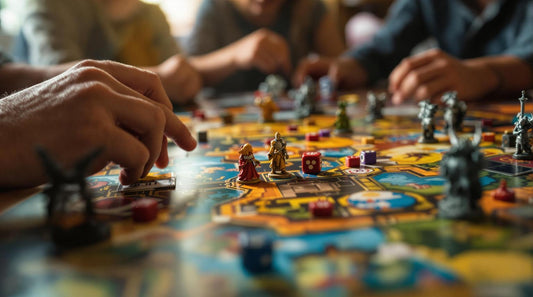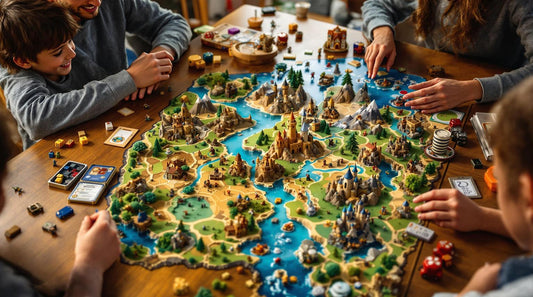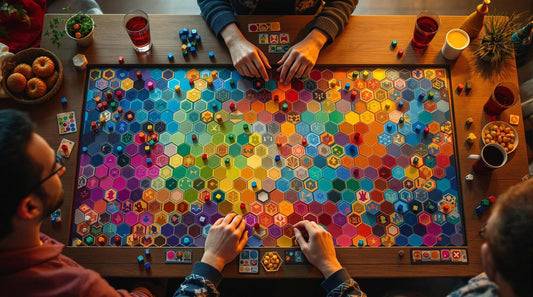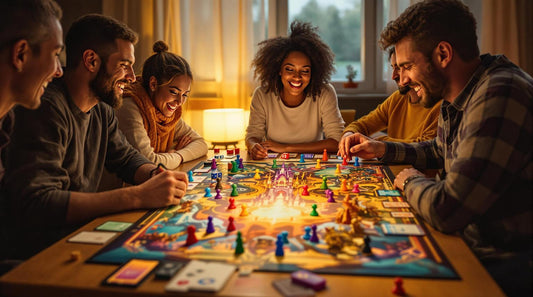Board Game Explorer

Ultimate Guide to Endgame Strategy Development
Endgame strategy is the deciding factor in many board games. Mastering it can help you secure draws, convert small leads into wins, and make better decisions with limited resources. Here’s...
Ultimate Guide to Endgame Strategy Development
Endgame strategy is the deciding factor in many board games. Mastering it can help you secure draws, convert small leads into wins, and make better decisions with limited resources. Here’s...

Family Games vs Strategy Games: Key Differences
Family games and strategy games offer distinct experiences tailored to different audiences. Here's a quick breakdown: Family Games: Simple rules, short playtime (15–45 minutes), suitable for all ages, mix of...
Family Games vs Strategy Games: Key Differences
Family games and strategy games offer distinct experiences tailored to different audiences. Here's a quick breakdown: Family Games: Simple rules, short playtime (15–45 minutes), suitable for all ages, mix of...

How Map Exploration Games Improve Spatial Reaso...
Spatial reasoning is essential for tasks like navigation and problem-solving, and map exploration games are a fun way to strengthen these skills. Here's why they work: Boost Spatial Skills: Games...
How Map Exploration Games Improve Spatial Reaso...
Spatial reasoning is essential for tasks like navigation and problem-solving, and map exploration games are a fun way to strengthen these skills. Here's why they work: Boost Spatial Skills: Games...

Variable Turn Order Mechanics Explained
Variable Turn Order (VTO) adds unpredictability to games by changing the sequence of turns dynamically. Unlike fixed turn orders, VTO uses methods like shuffled decks, token draws, or player-controlled systems...
Variable Turn Order Mechanics Explained
Variable Turn Order (VTO) adds unpredictability to games by changing the sequence of turns dynamically. Unlike fixed turn orders, VTO uses methods like shuffled decks, token draws, or player-controlled systems...

Sequence Letters vs Alphabet Island: Which Game...
Choosing between Sequence Letters and Alphabet Island depends on your child’s learning needs and reading level. Here’s a quick breakdown: Sequence Letters: Best for ages 4-7, focusing on letter recognition,...
Sequence Letters vs Alphabet Island: Which Game...
Choosing between Sequence Letters and Alphabet Island depends on your child’s learning needs and reading level. Here’s a quick breakdown: Sequence Letters: Best for ages 4-7, focusing on letter recognition,...

Guide to Designing Inclusive Games
Creating games that everyone can play isn't just important - it's necessary. Games often unintentionally exclude people due to color-based cues, complex rules, or small components. Here's how to design...
Guide to Designing Inclusive Games
Creating games that everyone can play isn't just important - it's necessary. Games often unintentionally exclude people due to color-based cues, complex rules, or small components. Here's how to design...






